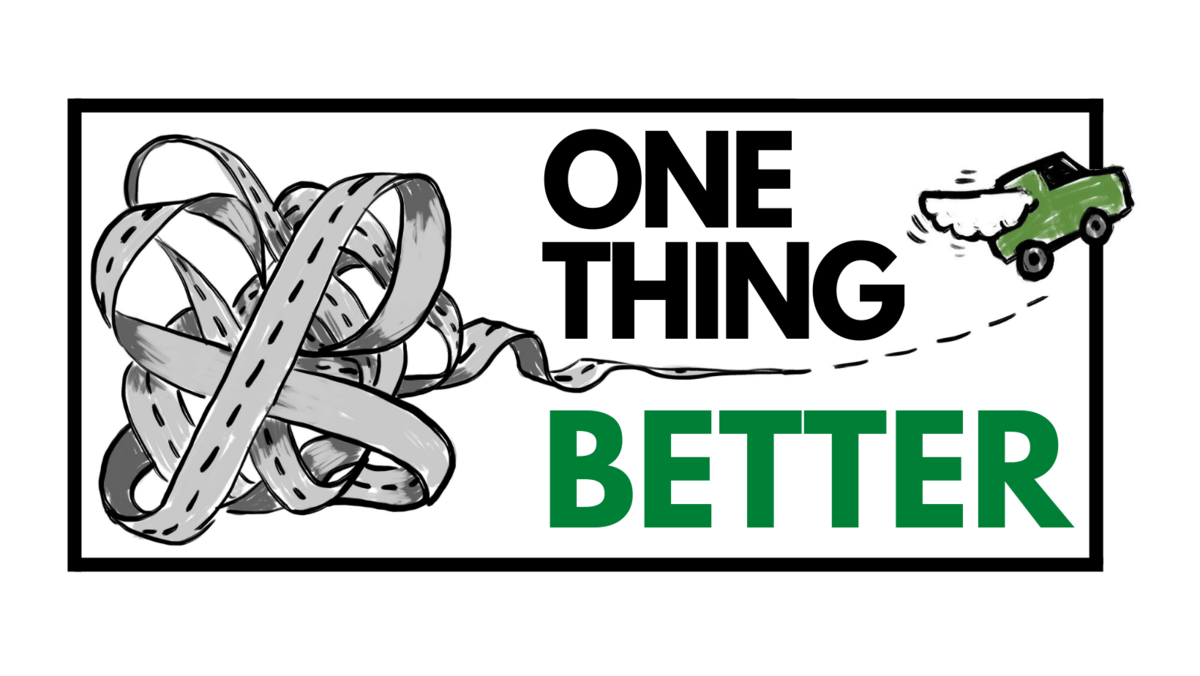- One Thing Better
- Posts
- Why People Feel Nostalgic For Covid (And That's OK)
Why People Feel Nostalgic For Covid (And That's OK)
Our brains are built to forget the bad. And that's good for our futures.

Have you been reminiscing about the good times of Covid? Many people have, like this:
Suddenly, today, I panicked about life inching back toward “normal.”
I don’t want to travel endlessly for work. I don’t want my weekends to be over-committed with activities. I don’t want to miss bedtime with my kid. I don’t want to wear blazers — or, hell, even shoes.
— Emily Ramshaw (@eramshaw)
2:43 AM • Mar 6, 2021
When I first saw stuff like this, I was ready to indulge my indignity. Why, I wondered, must we always look backwards? Why can’t we shake a “good ol’ days” narrative, even when these ol' days featured death and economic hardship? Why can’t we just start looking forwards for once!?
But then I started calling memory researchers (for an episode of my podcast about Covid nostalgia), and learned that our brains are programmed to do this kind of stuff — and that it’s not bad! It’s all about focusing us on the future.
Here are three things about memory that you may not know, and that help explain why we think fondly about a year’s worth of lockdowns:
1. You're not remembering. You're imagining.
Our brains don’t record things like a film reel. Instead, our brains break experiences up into tiny parts and store them separately. Imagine going on a vacation, then slicing that vacation into dozens or hundreds of tiny little pieces, and then sticking them all in different places in your brain. That’s basically what’s happening. When you want to remember the vacation, your brain must reassemble those pieces on the fly, providing you with what feels like a coherent narrative.
Why does our brain do this? In part, it's a data problem: Whole memories are too much to store. We couldn’t do it if we tried.
But here’s where it gets crazy: Because our memories are in fragments, we cannot remember things whole. Felipe De Brigard, a memory researcher at Duke University, compared it to a paleontologist reassembling a broken-up dinosaur bone. “You don't have all the pieces,” he told me, “so you have to make use of other kinds of information to complete the fossil.”
And what kind of information do we have, to fill in the missing gaps of our memory? We imagine it.
“Memory and imagination are really not entirely different faculties,” Felipe told me. “Memory and imagination are profoundly intertwined. Many of the processes that enable us to remember the past are also processes that enable us to imagine not only possible futures, but enable us to imagine alternative ways in which past events could have occurred.”
In short: We remember pieces of our past, and imagine the rest, and we experience the entire thing as truth.
OK, so why would we think fondly about an experience like Covid? That’s because…
2. You’re experiencing fading affect bias
That’s the scientific term for a common memory phenomenon: We retain good memories much longer than we retain bad ones.
This is a defense mechanism. “If our memories of bad events were as negative at the time of retrieval as they were at the time of encoding, it would be a very burdensome memory to live with,” Felipe said.
We want to learn from our bad times, but we don’t want to viscerally recall them. For this reason, we hold onto the positive memories that can help us into the future — the ones that help our relationships feel stronger and give us a sense of purpose! — and we let go of the memories that anchor us backwards. (This doesn’t work for everyone, of course, and that’s when therapy is helpful.)
3. You remember things, not time
Our brains do not have a clock or a calendar. Anne E. Wilson, a memory researcher at Wilfrid Laurier University, told me that we use a very different method to remember how long ago something was:
“Time is measured often in terms of distinct, discrete events,” she said. “We also measure time by much we feel like things have changed. The more we feel like things have changed, the further that time period in the past might feel.”
In normal times, that works. You might not remember exactly when you took that job (was it 2015 or 2016?) but you know roughly what stage of your life it was in. Or you might not remember if that dinner with friends happened in May or June, but it’s close enough.
Covid took those markers away from us. So much of it was the same. That meant our brains had little to hook onto, which means most of the experience became a blur and the only memorable experiences were the truly unique ones — either the horror of loss, or the delight of something unique like spending more time with your kids. (As a dad of two little boys, I'll admit that spending that much time with my kids was not a constant joy… but this is why we have fading affect bias, isn’t it?)
In short, why do we reminisce about the good times of Covid? Because our memories are partly our imagination, we hold onto good memories longer than bad ones, and we had few experiences to mark our sense of time.
Covid nostalgia: It’s not a sign of our preference for the past. It’s the natural outcome of a brain that’s focused on making us feel good in the present, and preparing us for the future.
For an even deeper dive, listen to the podcast!
⠀⠀⠀⠀⠀⠀⠀⠀⠀
Bonus entrepreneurship tip: Looking to get a promotion at work? Don’t overlook the importance of your email subject lines!